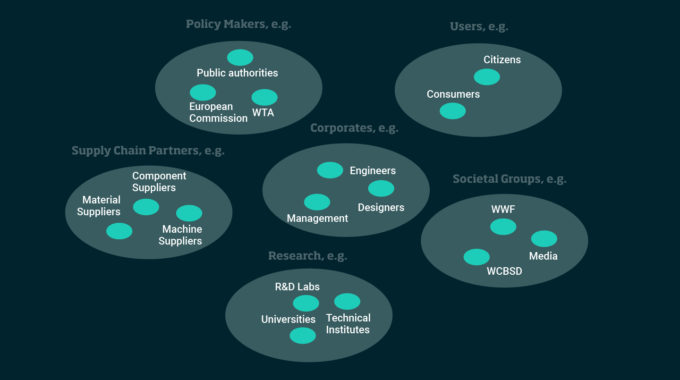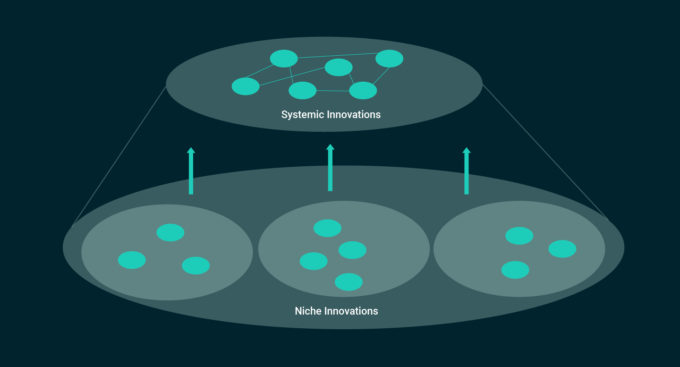- Lobbying
The second approach involves actively participating in institutional policymaking. Take the example of the European Green Deal. In December 2019, the European Union presented a commitment to reduce EU emissions to net zero by 2050 by focusing on 50 policy measures with legally binding targets. The four key target areas were (1) becoming climate neutral by 2050, (2) protecting humans, animals, and plants by cutting pollution, (3) helping companies become world leaders in clear products and technologies, and (4) ensuring a just and inclusive transition.
The EU invited companies to collaborate in setting these policies, resulting in 2,600 interest groups actively engaging in the Green Deal’s agenda. Besides interest groups, firms can influence policy directly by or gathering information, meeting officials, participating in public hearings, or actively suggesting policy recommendations. The Green Deal also led to greater demands for transparency. Legislators and investors called for a standardized methodology for sustainability reporting with trustworthy data. This allows organizations to better communicate the long-term value of their investments and avoid being accused of engaging in greenwashing. The International Sustainability Standards Board, which was announced in November 2021, is such an outcome of the demand for more transparency. Leading up to the implementation of this board, firms are able to provide their input towards the reporting requirements. Without actively engaging with public authorities in the process, an opportunity is missed.
- Catalyzing
The third pathway involves leveraging exogenous events as “tipping points” – be it a recession, war, or climatic events such as floods or wildfires. Through these exogenous events, existing normative rules of behavior are questioned, and this can be used as an opportunity. Rules and artefacts shape stakeholders, and since rules are not just written in policies but also embedded in the heads of actors, working on perceptions of what “appropriate rules” might be will help to shape the actions they take. Workers, for instance, are becoming more vocal and shaping firms’ agendas by going on strike. Deloitte’s Global Gen Z and Millennial Survey shows that millennials demonstrate higher loyalty to their employers when they act on sustainability practices. Codification of new expectations through scripts shaped among stakeholders can lead to the adjustment of expectations. The Global Knights 100, a ranking of the world’s most sustainable companies, is an example of a formalized codification of expectations. As the acceptance of these expectations increases and is socialized among actors over time, new norms emerge – and by actively working on shared expectations of rules and routines through communication, stakeholders can adjust their representations. It is therefore the role of firms to actively engage in communication of new rules and norms and leverage “moments of crises” to shape stakeholder expectations.
What role are you playing in helping to advance multi-stakeholder sustainability initiatives? Are you truly engaging multiple stakeholders to shape the agenda of your sustainability initiatives? And are you actively investing in, lobbying for, or catalyzing these initiatives?

Audio available








